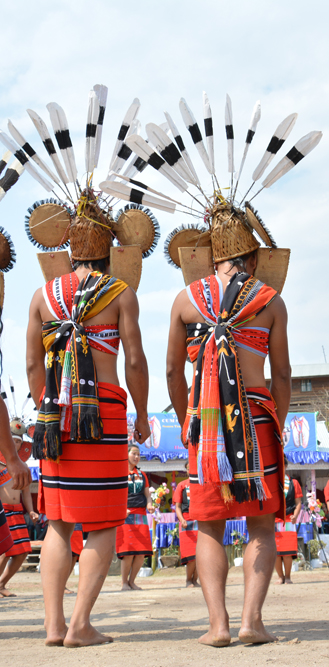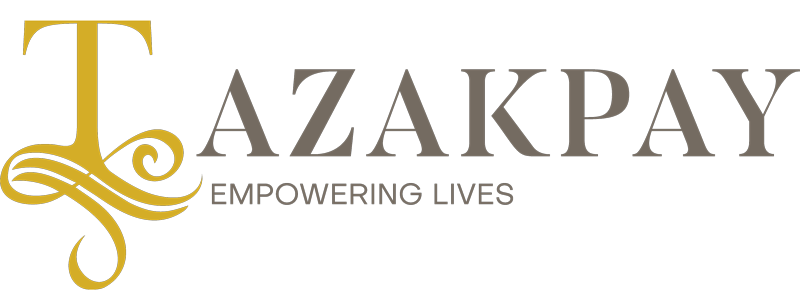
ADDRESSING SOCIAL AND ECONOMIC INEQUALITIES
Through Technology Enabled Financial Solutions
In small pockets of Delhi and the Indigenous population of North East India, Tazak Technologies Private Limited has found its way into the heart of many homes through its financial service TAZAKPAY. This is bridging a gap among the financially marginalized segments of the population, which has been for long left out by conventional banks. This is also a major shift from the traditional lending system that charges exorbitant interest rates by loan sharks. This could have profound impact in addressing social and economic inequalities in the indigenous population of the North east India region, an area with a long history of decades of militarization, lack of accountability of state institutions and no access to basic services.
The Migration

Swarna (21), a first time flight hostess, had just completed her training and needed to relocate in the city. She spent many days running around banks to apply for credit. She was not provided a loan or a credit card by the banks as her address is from the North East India. Her only option was to go to private lenders whose interest rate average at 120% annually. The parents have no financial means to send her money for the rent deposits she needed.
Joseph Panmei, (24), from Manipur, a state in North East India works as a waiter in a restaurant in Delhi and look after his younger brother who studies in Delhi University. The owner paid his salary in cash every month to avoid tax. That leaves him with no bank account and credit record. When his brother got sick and was admitted in a hospital, he has no cash reserved. He was not eligible for credit from banks. He borrowed from friends and repays them after his salary. But he is in debt ever since.
Shobita Yumnam, (54), a North East shop owner, had migrated to the city to be near her child studying in Delhi. Her husband’s pension and the small shop was their only source of income. They couldn’t get a loan from the bank as they are immigrant in Delhi.
“I had to mortgage my gold chain for a loan. The banks would not give us loans; the landlords would not let us register our shop as they don’t want to show the rental income to the government. Many of my friends face the same problem. Loan sharks are on the rise but we have very little options,” said Shobita.
The Home Stories
 Their stories are no different from their home state. With over 72.50% of the population still having no proper access to financial services, the need to facilitate community oriented financial service was greatly felt. The collapse of traditional social institutions, ineffective policy, weak economy and decades of violence has left the indigenous community with little or no opportunity. With government job saturated and with no industry to absorb the people, unemployment and poverty have become a major problem.
Their stories are no different from their home state. With over 72.50% of the population still having no proper access to financial services, the need to facilitate community oriented financial service was greatly felt. The collapse of traditional social institutions, ineffective policy, weak economy and decades of violence has left the indigenous community with little or no opportunity. With government job saturated and with no industry to absorb the people, unemployment and poverty have become a major problem.
High expectations of the local population generated by the partial relaxation of militarization but nowhere to turn to, the problem is gradually turning into a crisis situation. In this regard, banks has a role but conventional banks have targeted only a small section of the salaried economy and have always focused on profit maximization thus excluding nearly 73% of its population from accessing financial and social benefits.
It may be noted that the problems lies not only on the inefficiency of Conventional banks in indigenous region but the crucial issue is that conventional banks sees the community land holding system as a liability for their expansion and operation. TAZAK on the other hand has taken the opportunity of building on the social capital and assets of the community which will be the key to the success of TazakPay.
Banks has a history of excluding certain groups from accessing good quality, non-predatory financial services. This types of failures both drives and exacerbates conditions of economic and social inequality. TazakPay aims at making finance easily available to Small entrepreneurs, young professionals and women weavers who are in the unorganised sector.
In a small town of Ukhrul, inhabited by the Indigenous Naga people, women vegetable venders and weavers play a major role in the town’s economy. However, the town with a population of 216,000 is currently being served by only three banks with three ATM kiosks, some of which are located in the Indian Army camps. Many of the population having socially traumatized by militarization distance themselves from transaction within those banks. These women who have their own Self Help Group, depends largely on social enterprises and NGOs.
To address the underlying issue of social and economic imbalances and increasing exploitation against indigenous communities, TazakPay started providing collateral free micro loans to traditional weavers, small enterprises, and young professionals. The processes are easy, fast and flexible. The loans have been tested and designed keeping in mind the cumulative experience of the community.
“I had just relocated to a different city after my training and was short of finance for deposits on my apartment. TazakPay professional loan was my solution”. Swarna said. 100% of people who have availed loans said they have benefited from it. The processes are quite simple and the interest rates lowest compared to other lenders in the market.
As a logical step, TazakPay is devising and looking out for opportunities to initiate full-fledged support for community-based development initiatives and social entrepreneurship that will foster environmentally sound enterprises and solutions for Poverty, and promotion of cultural values. It is hoped that it will lead to sustainable handling of natural resources , the balanced advancement of the community as a whole and human development towards a more green and sustainable lifestyle. Creating opportunities though our financial outreaches, we would like to cover the indigenous population in North East India. With sparsely populated communities and geographical location, it will be challenging to penetrate the remotest area but we would like to explore solutions using technology enabled solutions. We are also interested in supporting and promoting sustainable subsistence economy thus the forming of Organic farmers’ Group for stepping into ecological banking soon.
